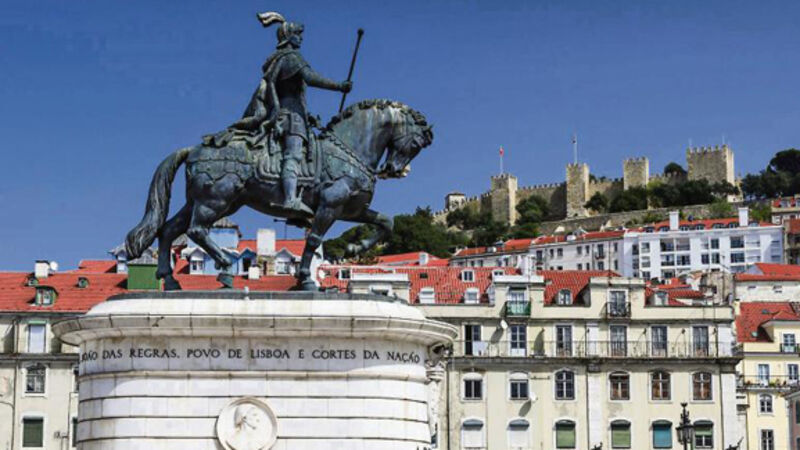Portugal faced same banking crisis

We travelled to the Portuguese capital for a short break and were taking a tour of the city after dusk.
They have two important monuments there, one dedicated to the famous explorer Vasco da Gama, the other a giant statue of Christ with outstretched arms, which is located above the city.
















